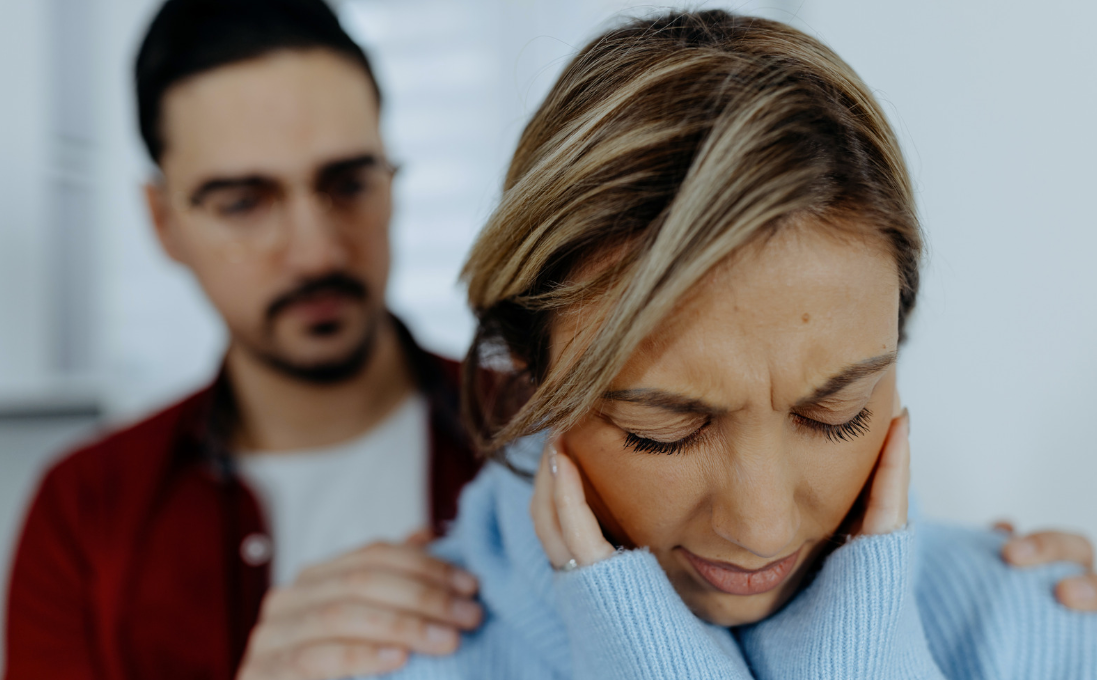Emotional abuse is often overlooked, misunderstood, or minimized because it doesn’t leave visible scars like physical abuse does. However, the impact of emotional abuse can be profound, affecting a person’s mental health, self-esteem, and overall sense of well-being. The scars left by emotional abuse run deep and can linger long after the abusive relationship has ended. If you’re experiencing feelings of emotional abuse, it’s important to understand what emotional abuse looks like, how to recognize the signs, and what steps you can take to heal.
In this article, we’ll explore the nature of emotional abuse, common signs that you’re being emotionally abused, how emotional abuse impacts your mental and emotional health, and ways to seek help and begin the healing process.
What is Emotional Abuse?
Emotional abuse, also known as psychological abuse, involves behavior that manipulates, controls, or diminishes the other person’s emotional and mental well-being. It can occur in any relationship—romantic, familial, or even in friendships—and it often involves a pattern of harmful behaviors that undermine a person’s confidence, sense of self-worth, and autonomy.
The abuser uses words, actions, and even silence to manipulate or control the victim. The challenge with emotional abuse is that it can be subtle and difficult to identify, especially in its early stages. It often leaves victims doubting themselves, wondering whether they’re overreacting or imagining the abuse.
Common tactics of emotional abusers include:
- Manipulation: Using guilt, fear, or obligation to control the other person.
- Gaslighting: Making the victim question their reality by denying events, downplaying their feelings, or making them feel confused and unstable.
- Isolation: Cutting the victim off from friends, family, or other support systems to gain control.
- Criticism and Belittling: Constantly putting down the victim, making them feel worthless, stupid, or incapable.
- Silent Treatment: Withholding communication and affection as a form of punishment.
- Blame-shifting: Refusing to take responsibility for their actions and instead blaming the victim for everything that goes wrong.
Recognizing the Signs of Emotional Abuse
Many victims of emotional abuse don’t realize they are being abused until the damage has been done. The abuse often starts slowly, with subtle behaviors that can be easily dismissed or rationalized. Over time, these behaviors escalate, leaving the victim feeling trapped and powerless. If you’re unsure whether you’re experiencing emotional abuse, here are some common signs to look for:
- Constant Criticism and Belittling
One of the hallmarks of emotional abuse is the constant criticism that leaves you feeling inadequate. Your abuser may criticize everything from your appearance and abilities to your opinions and choices. These remarks are not constructive or meant to help you grow—they’re designed to undermine your confidence.
Example: Your partner might say things like, “You’re always wrong,” “I don’t know why you even try,” or “You’re so stupid.” Over time, you may begin to internalize these criticisms and believe you’re not good enough.
- Gaslighting and Manipulation
Gaslighting is a form of emotional abuse where the abuser makes you question your perception of reality. They might deny things that have happened, twist the truth, or make you feel like you’re overreacting to situations. This tactic leaves you feeling confused, disoriented, and doubting your own memories or feelings.
Example: If you confront your partner about something hurtful they said, they might respond with, “You’re making that up,” or “You’re being too sensitive; that never happened.” Over time, this erodes your ability to trust your own judgment.
- Isolation
An emotional abuser may try to isolate you from friends, family, or other supportive relationships. They might do this by creating conflict between you and your loved ones, discouraging you from spending time with others or making you feel guilty for seeking external support.
Example: Your partner might say things like, “Your friends don’t really care about you,” or “I don’t like it when you spend time with your family; you should be with me instead.” This leads to feelings of loneliness and isolation.
- Blame-Shifting and Refusing Responsibility
In emotionally abusive relationships, the abuser will often refuse to take responsibility for their actions. Instead, they will shift the blame onto you, making you feel like you’re the cause of every problem in the relationship.
Example: If your partner lashes out in anger, instead of apologizing, they might say, “If you didn’t make me so mad, I wouldn’t have reacted that way.” This pattern makes you feel responsible for their behavior, even when it’s clearly abusive.
- Fear of Speaking Up
Victims of emotional abuse often become fearful of speaking up or expressing their needs because they’ve been conditioned to expect negative consequences. You may worry that if you voice your concerns, you’ll be met with anger, rejection, or punishment in the form of silence or withdrawal.
Example: You might stop voicing your opinions because every time you do, your partner either belittles you or punishes you with the silent treatment. Over time, you might find yourself walking on eggshells, afraid to trigger another abusive episode.
- Feeling Constantly Drained
Being in an emotionally abusive relationship is exhausting. The constant criticism, manipulation, and lack of emotional support can leave you feeling drained, anxious, and mentally depleted. You may feel like no matter what you do, it’s never enough to make your partner happy.
Example: After spending time with your partner, instead of feeling uplifted or connected, you feel emotionally exhausted. The relationship leaves you feeling like you’re constantly walking through an emotional minefield.
The Emotional Impact of Abuse
The feelings of emotional abuse go beyond just sadness or frustration—they can have serious and lasting effects on your mental health. Here’s how emotional abuse can impact you emotionally and psychologically:
- Low Self-Esteem
One of the most common effects of emotional abuse is a severe decline in self-esteem. Constant criticism, belittling, and manipulation can make you feel like you’re not worthy of love or respect. Over time, you may start to believe the negative things your abuser says about you.
Example: If you’re constantly told that you’re not good enough, you may begin to internalize these statements, doubting your own worth and capabilities. You might think, “Maybe I really am a failure,” or “I guess no one else will ever love me.”
- Anxiety and Depression
Emotional abuse often leads to chronic feelings of anxiety and depression. The constant stress of being in an emotionally abusive relationship can make you feel hopeless, anxious about the future, and fearful of what might happen next.
Example: You may feel anxious every time you’re around your partner, never knowing what mood they’ll be in or whether you’ll be criticized. Over time, this can lead to a constant state of tension and fear, as well as feelings of depression and worthlessness.
- Codependency
Emotional abuse can foster codependent dynamics in a relationship. As the victim, you may become overly reliant on your abuser for validation and approval, even as they continue to diminish your self-worth. This dependency makes it harder to leave the relationship, as you feel like you need their approval or love, despite the abuse.
Example: You may find yourself constantly seeking your partner’s validation, even though their love comes with conditions or manipulations. You might think, “If I just try harder, maybe they’ll love me again.”
- Emotional Numbness
In response to prolonged emotional abuse, you may start to feel emotionally numb. The constant pain and stress of the relationship can lead you to shut down your emotions as a defense mechanism. While this may temporarily protect you from feeling hurt, it can also prevent you from experiencing joy or connection.
Example: You may find that you no longer feel excitement, happiness, or even sadness—you’re just going through the motions of life, feeling detached from your emotions.
How to Heal from Emotional Abuse
Recognizing the feelings of emotional abuse is the first step toward healing. Once you understand that you’re being abused, you can begin to take steps to protect yourself, rebuild your self-esteem, and heal from the damage caused by the abuse.
Here’s how you can start the healing process:
- Acknowledge the Abuse
The first step to healing is acknowledging that you’ve been emotionally abused. This can be difficult, especially if you’ve been gaslighted or manipulated into doubting your own perceptions. But it’s important to recognize that the abuse is not your fault and that you deserve to be treated with love and respect.
- Reach Out for Support
You don’t have to go through this alone. Reach out to trusted friends, family, or a therapist for support. Talking to someone who understands what you’re going through can provide validation and help you gain perspective on the situation.
Example: You might feel embarrassed or ashamed to talk about the abuse, but confiding in a trusted friend can provide relief and make you feel less isolated.
- Set Boundaries
If you’re still in contact with your abuser, it’s essential to set clear boundaries to protect your emotional well-being. This might involve limiting communication, creating physical distance, or cutting off contact entirely.
Example: You can say, “I need some space right now, and I won’t be available to talk for a while.” Setting boundaries is an important step in reclaiming your power.
- Rebuild Your Self-Esteem
After enduring emotional abuse, your self-esteem may be shattered. Take time to focus on rebuilding your confidence and sense of self-worth. Engage in activities that bring you joy, surround yourself with positive influences, and remind yourself of your strengths and accomplishments.
Example: Start by making a list of your positive qualities or things you’ve accomplished. Celebrate small victories, and give yourself credit for the progress you’re making in your healing journey.
- Seek Professional Help
Healing from emotional abuse can be a long and difficult process, and it’s often helpful to seek professional support. A therapist can help you process the trauma, develop coping strategies, and rebuild your emotional health.
Example: Cognitive-behavioral therapy (CBT) can help you identify and challenge negative thought patterns that have developed as a result of emotional abuse. A therapist can also provide tools for managing anxiety, depression, and other emotional consequences of abuse.
Final Thoughts: Moving Forward After Emotional Abuse
Experiencing feelings of emotional abuse can leave you feeling broken, lost, and unsure of your worth. But it’s important to remember that healing is possible. The journey to recovery may take time, but with the right support, boundaries, and self-care, you can rebuild your life and regain your sense of self.
The most important step is acknowledging the abuse and taking action to protect yourself. Whether that means leaving the relationship, seeking therapy, or rebuilding your self-esteem, every step forward is a victory. Emotional abuse is never your fault, and you deserve a life filled with love, respect, and kindness.




‘Emotional scars’… Is that like when you accidentally step on a Lego? I mean, come on, let’s keep things in perspective here!
“This article serves as an important reminder that emotional wounds can be just as debilitating as physical ones. Awareness leads to healing.”,
It’s crucial to recognize the signs of emotional abuse. The examples provided are very relatable and will help many identify if they’re in such a situation.
*sigh* So emotional abuse is now a thing? What’s next, complaining about someone not liking your favorite ice cream flavor? Give me a break!
Honestly, I think this article is just over-exaggerating. Emotional abuse is not as serious as physical abuse. People need to toughen up.
While I agree emotional abuse can be harmful, shouldn’t we focus more on how to prevent it rather than just talking about its effects? Prevention is key!
This article is incredibly insightful! It sheds light on an often misunderstood topic. Thank you for bringing awareness to emotional abuse.
‘Emotional abuse’? Sounds like another buzzword invented to get sympathy points. Can we please focus on real issues instead?